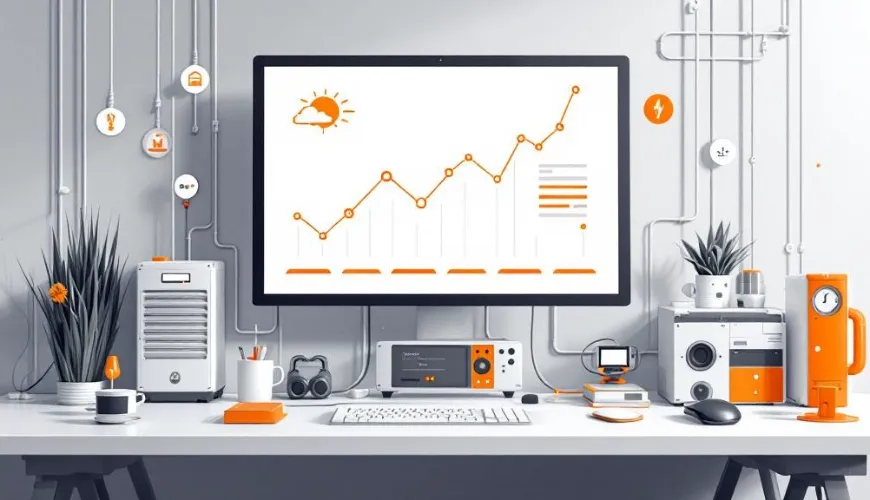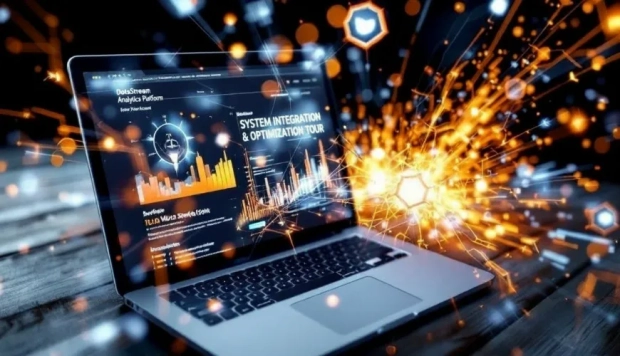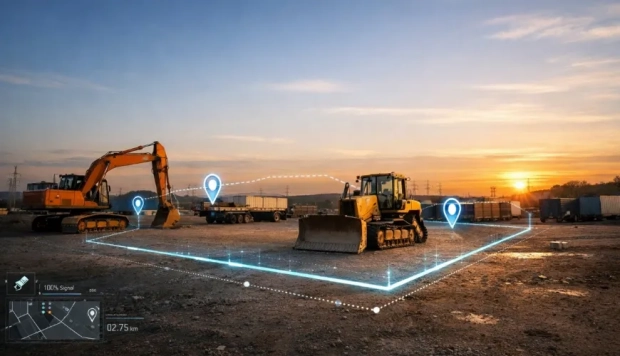How Industrial Power Supply Choices Affect Efficiency in Modern Facilities

Modern businesses rely heavily on industrial power supply. How else could they keep warehouses, factories, and even large storefronts running without electricity? If your business has its own brick-and-mortar location, now’s the time to think about efficiency.
In the context of industrial power supply choices, efficiency refers to practices and processes designed to minimise energy use and keep overall business costs down. This post intends to explore this topic in more detail and explain how you can intelligently manage power usage and save money. Read on to find out more.
Setting Up Your Power Supply Units
If you have a large industrial power setup in your business, you obviously need to think about placement. Where are you going to put power supply units? Whether you use a high-quality (and industry-recommended) industrial UPS system or another unit, you need to put it somewhere that isn’t going to get in the way. Basic layout choices can have a huge impact on efficiency.
As well as placement, wire arrangement is an important consideration. Wires must never get in the way. If employees hurt themselves because wires cause them to trip or fall, they could take legal action against you. Injuries can also slow down your employees and impact business efficiency.
What Considerations Need to be Made Before Purchase?
Energy Use Considerations
When it comes to energy efficiency, you need to estimate your annual power needs. The only way you can do that is if you sit down and think long and hard about which power supply units you are going to use, how much energy you use on average per year, and your annual energy budget.
Taking time to think about your business’s annual energy use can help you to prevent overspending and keep your company fully energy efficient. The more efficient it is, the better it will look in the eyes of customers. People no longer want to support businesses that aren’t taking steps to counter climate change.
Equipment Compatibility
If you plan on buying industrial power equipment, you need to take time to think about compatibility with existing equipment. Don’t make the mistake of rushing into buying anything, because there is no guarantee you will be able to get your money back once you have used it for a little while. Take time to shop around and find the most trusted and reliable suppliers you can.
Equipment compatibility is something you can ensure by getting in touch with your chosen power equipment supplier and asking them for their support. They should be able to send somebody to your business’s location and assess whether the existing equipment is compatible or not. Having to discard incompatible equipment is the opposite of efficiency.
Load Handling
Load handling is something always worth thinking about when you are considering purchasing industrial power equipment. Do you use a lot of energy? If so, you naturally need to make sure that the equipment you buy is able to support this volume of energy use. Buying equipment not designed to endure heavy loads can lead to failure and breakdown, which can cost you a lot of money, and isn’t an efficient business practice at all.
Something else you need to consider is busy periods. There may be certain times of the year when you use more energy than others. During such times, it is absolutely essential that your equipment is able to withstand an uptick in energy use. Speak to a supplier today to find out which equipment you need.
Cooling Down
To ensure total efficiency, make sure you give your power units space so that they can cool down. Overheating can cause total mechanical failure, which is not something you want. Having to purchase more power units will not only cost you money but also harm the environment. The production of these units can be detrimental to the planet. Buy some, and take care of them.
In order to make sure units are able to cool down, ensure they have internal fans, and that they are placed in areas that get good airflow. Good airflow can keep units cool during hot weather and stop them from overheating because it gives them room to breathe.
What Other Considerations Should You Make?
-
Safety considerations. The next thing to think about is safety. Having large industrial power units in your business isn’t inherently dangerous, but if you do not train employees how to use them properly, you can get into a lot of trouble. Many people make the mistake of giving employees free rein with all business equipment. Doing this can lead to injuries.
To enhance safety, make sure wires are properly tucked away and not exposed, so employees do not trip or electrocute themselves. Also, make sure that rooms where electrical equipment is stored are kept dry, so that units do not get exposed to water. Water can cause some serious damage to industrial power units.
-
Overall reliability. Efficiency isn’t just a term used to describe processes and practices designed to protect the environment. It’s also something that can describe ways in which businesses save money. When you are shopping for industrial power units, you obviously need to try and find reliable ones.
The reason you need the most reliable equipment you can get your hands on is so that you do not have to replace units in the future. If you have to replace units, this means you could end up having to pay for them twice. A good way to determine a unit’s suitability is to read reviews left on its supplier’s website.
-
Power backups. If any of your power supply units break down, you need to have others that can take over for them. This is especially important if you own a factory or a warehouse. If a power supply unit breaks down and it is your only one, your business could come to a grinding halt. If operations completely stop, you could end up losing a lot of money.
When you are looking for a supplier to buy power units from, mention that you need backup equipment, too. You should not have a hard time finding a supplier who’s able to provide emergency equipment or units that have built-in backup features that automatically activate when power is lost.
Maintaining Your Power Units
When you buy industrial power units, you have to think about maintenance requirements. The last thing you want is to spend money on power units you aren’t qualified to maintain or take care of. Bear in mind that for large units, it’s almost always necessary to outsource maintenance to a specialist, qualified maintenance company.
If you are planning on hiring a maintenance company to come in and take care of your power units for you, you need to shop around and find one with good reviews. As mentioned above, reviews give you clear insight into what a specific agency is like to work with.
Here are some other maintenance considerations (and related concepts):
-
Space needed. How much space are you going to need to store power units in-house? Space efficiency is something worth considering. A good way to determine space requirements is to reach out to the supplier you have chosen to work with and ask them how large their equipment is.
You can then go ahead and take measurements in your storage area. If you do not have enough space, you might want to consider investing in more compact power units. Power units come in many different shapes and sizes, so you shouldn’t have a hard time finding one that is the right size for your business.
-
System installation. Who is going to install your power supply units for you? If you are not qualified to set them up yourself, you will most likely be able to pay the supplier you are buying your unit from to do it for you. You do not usually have to pay much to have units installed. Sometimes installation is included in the price of the unit you purchase. To find out whether or not installation is included, get in touch with your chosen supplier and ask them if they can help you. Sometimes suppliers also offer complimentary maintenance.
If you are going to outsource to a third-party installation service, it is very important that you take the advice given above and shop around. Find a service that is going to be able to offer a high level of care and support, and charges reasonable prices.
Think About Overall Costs
One last consideration is that you need to think about ways in which you can save your business money. Take time to learn about how expensive industrial power supply units are to run. If you are going to invest in them, you need to be confident in your ability to pay for and maintain them.
To get an idea of running costs, get in touch with the supplier you plan on buying your units from, and ask them how much they predict units are going to cost to run over five years. Then, you can work out your budget and determine whether or not you can afford to buy them.
Industrial power supply choices can have a significant impact on the efficiency of your business. With so many different units to choose from, businesses need to do everything they can to make the right choices. Hopefully, the guidance given here will help you to boost your business’s energy efficiency.



